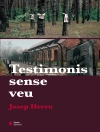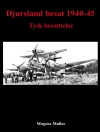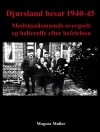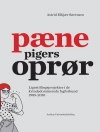Bringing together scholars from the fields of musicology and international history, this book investigates the significance of music to foreign relations, and how it affected the interaction of nations since the late 19th century. For more than a century, both state and non-state actors have sought to employ sound and harmony to influence allies and enemies, resolve conflicts, and export their own culture around the world. This book asks how we can understand music as an instrument of power and influence, and how the cultural encounters fostered by music changes our ideas about international history.
विषयसूची
List of Illustrations
Acknowledgements
List of Contributors
Introduction: Sonic History or Why Music Matters in International History
Jessica C. E. Gienow-Hecht
Part I: Music, International Relations and the Absence of the State
Chapter 1. The Wicked Barrisons
David Monod
Chapter 2. Modern Music and the Popular Front: The International Society for Contemporary Music and Its Political Context (1935)
Anne C. Shreffler
Part II: Music, International History, and the State
Chapter 3. Music and International Relations in Occupied Germany, 1945-1949
Toby Thacker
Chapter 4. Instruments of Diplomacy: Writing Music into the History of Cold War International Relations
Danielle Fosler-Lussier
Chapter 5. ‘To Reach… into the Hearts and Minds of Our Friends’: America’s Symphonic Tours and the Cold War
Jonathan Rosenberg
Chapter 6. Music Diplomacy in an Emergency: Eisenhower’s “Secret Weapon, ” Iceland, 1954–1959
Emily Abrams Ansari
Chapter 7. Intimate Histories of the Musical Cold War: Fred Prieberg and Igor Blazhkov’s Unofficial Diplomacy
Peter J. Schmelz
Chapter 8. “Where I Cannot Roam, My Song Will Take Wing”: Polish Cultural Promotion in Belarus, 1988
Andrea F. Bohlman
Index
लेखक के बारे में
Jessica C. E. Gienow-Hecht is Chair of the Department of History at the John F. Kennedy Institute for North American Studies at the Freie Universität Berlin and Alfred Grosser Chair at Sciences Po in Paris. She is the series editor of “Explorations in Culture and International History” (Berghahn Books) and her book Transmission Impossible: American Journalism as Cultural Diplomacy in Postwar Germany (1999) won the Stuart Bernath Prize and the Myrna Bernath Prize of the Society for Historians of American Foreign Relations. Her most recent monograph, Sound Diplomacy: Music and Emotions in Transatlantic Relations, 1850-1920 (2009, 2012 paperback) won the Choice Outstanding Academic Title Award and is currently being translated into Chinese. In 2017, Gienow-Hecht won a grant from the German Research Association to pursue a research on a project titled “The Quest for Harmony: Classical Music, Emotion, and the Discourse on Human Rights in the United States since World War II”.












